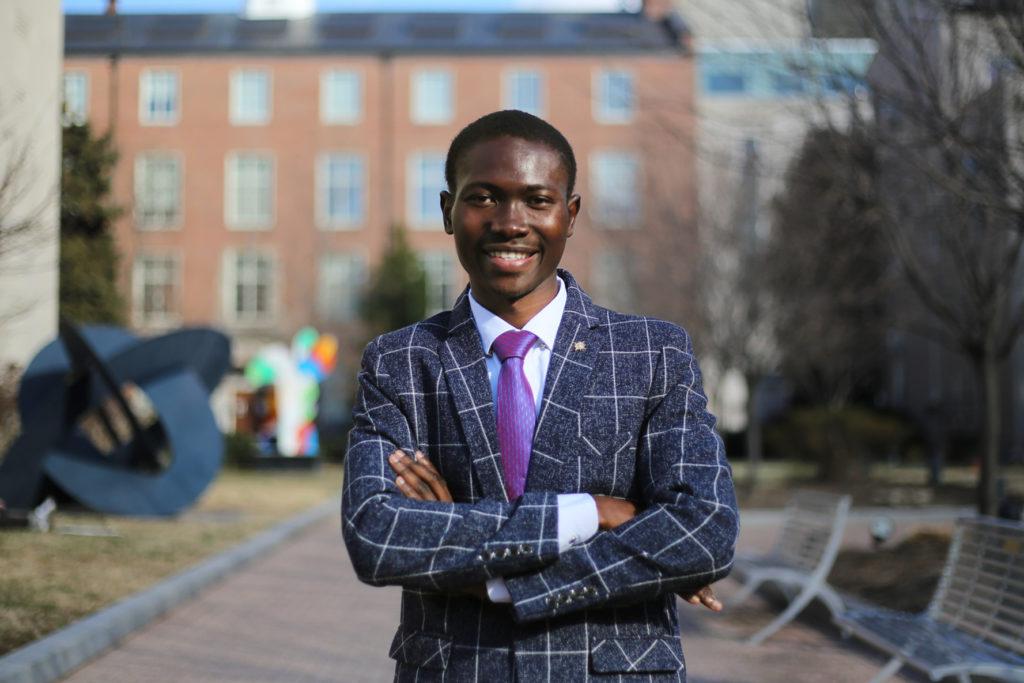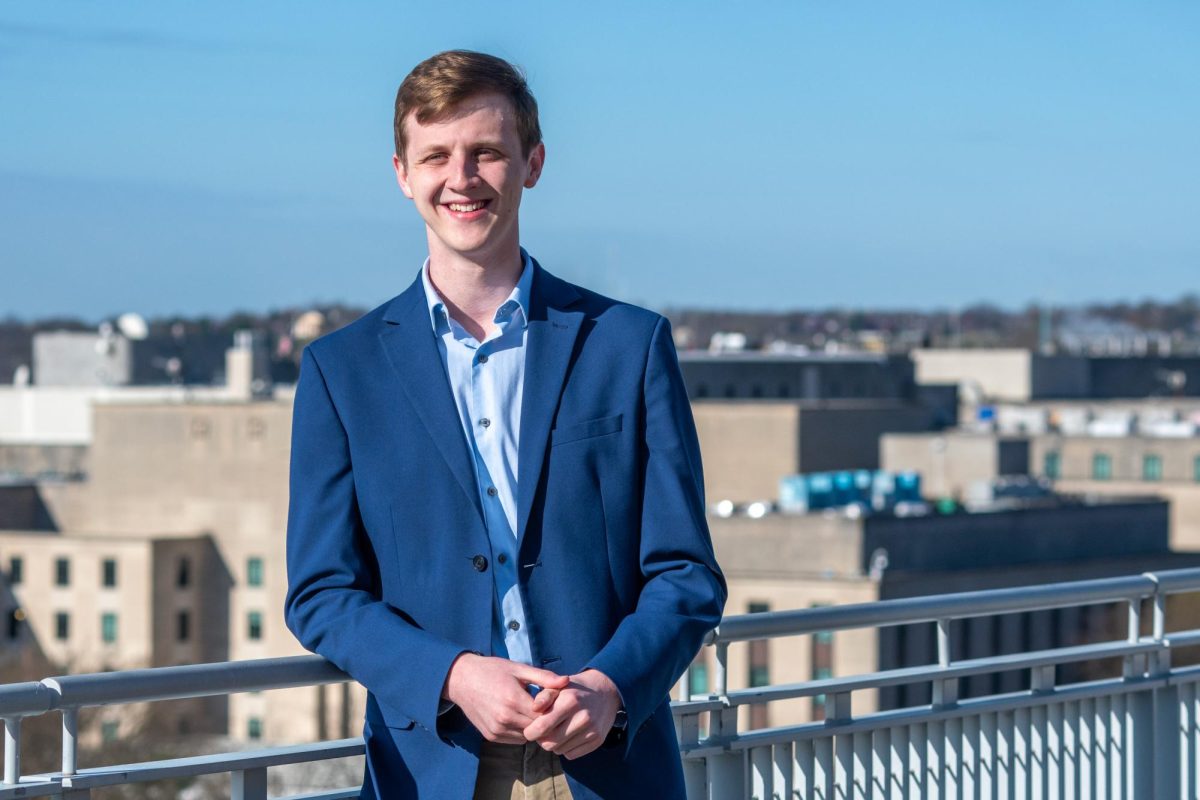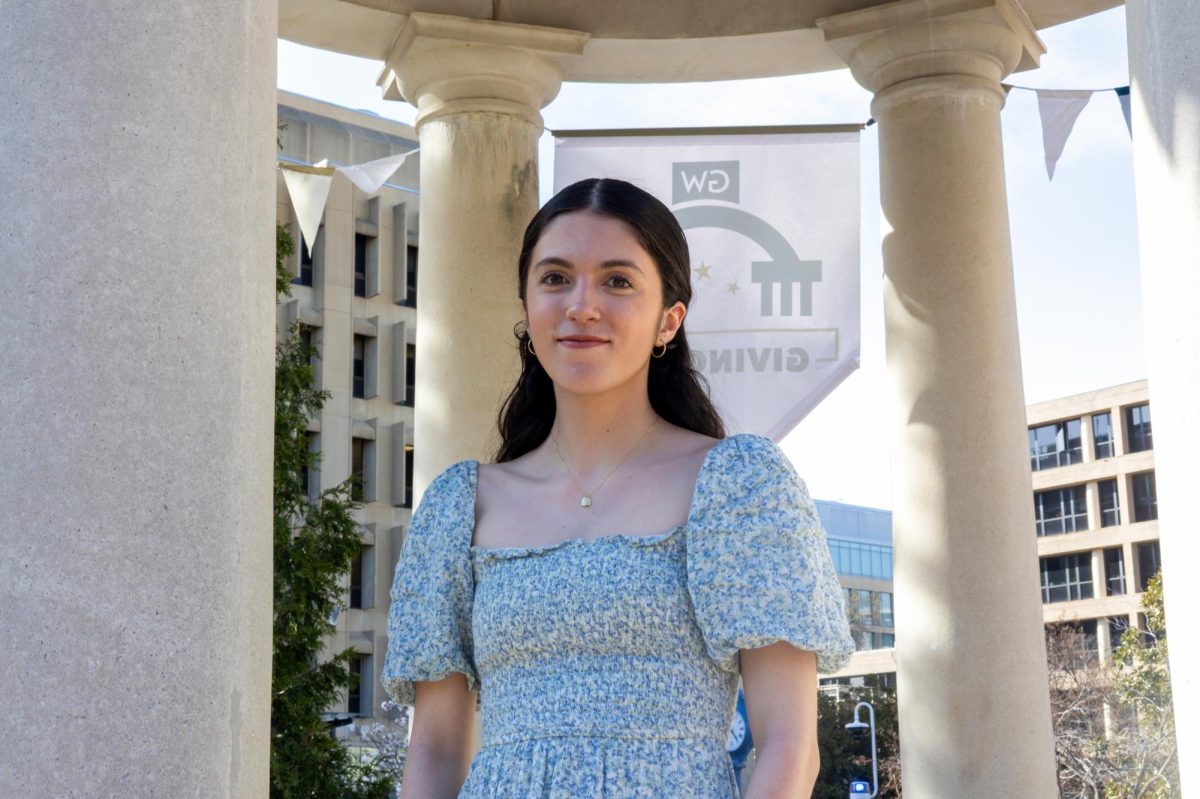A former candidate for Student Association president is again vying for the role on a platform to increase representation on campus for marginalized groups and create more avenues for the SA to build relationships with students.
Christian Zidouemba, a junior studying international business and international affairs, is centering his run this time around on adding internal roles, like SA director positions to support marginalized students, and pushing for professional development opportunities, like a mentorship program with alumni, he said. Zidouemba said since his last campaign, he has spent time learning the SA bylaws and speaking with top officials about his platform points.
He said his work with officials as an employee at the Lerner Health and Wellness Center, position on the Business School’s Dean’s Council for Multicultural Recruitment facilitating events for students of “underprivileged backgrounds” and leadership role in First Generation United allows him to bring a “fresh” perspective to the presidential position.
“We have an opportunity when we get back to campus to reinvent what student leaders should look like and to reinvent what our campus should look like,” he said. “I have dedicated my whole entire life fighting against inequity and injustice. And I have just done that in my time at GW.”
Zidouemba, joining the race with current SA President Brandon Hill and SA Sen. Charles Aborisade, U-at-Large, is required to gather at least 250 signatures during the candidate registration period from Feb. 24 to March 3 and be approved as a candidate by the Joint Elections Commission.
When Zidouemba ran for president last year, he vowed to increase professional resources available to students and implement a first-year class on networking and resume building. He said these policies are on his platform again this year.
He said he wants to create a mentorship program with the support of the SA and the GW Alumni Association to help groups on campus, like first-generation students, navigate professional resources and discuss potential career paths.
He said he has spoken with Patricia Carocci, the associate vice president of alumni relations and annual giving, about the program, which he said she supported. He said they also discussed possible fundraising efforts to create tuition scholarships for freshmen and first-generation students struggling to afford GW.
Zidouemba said if elected, he will also add a director of student-athletes to the executive branch to communicate with club and varsity sports teams to sponsor SA events for athletes and guide students who want to create new club teams.
“We can do community projects on our campus and sportsmanship activities to bring a sense of unity within the student-athletes and the GW community,” he said.
Zidouemba said he will use his connections at Lerner, where he works as a student employee, to increase advertisements about mental health resources available to students. He said he will also facilitate, with the help of the senate, weekly events for all students on topics like mental health hosted by the SA.
He said he would also work to advertise Greek philanthropy events and highlight the volunteer work of members of the Greek life community. He said he believes “there are genuinely good people” within Greek life organizations and wants to remind students that these organizations are founded in philanthropy, which should be acknowledged.
“For far too long, oftentimes people think that Greek life is just about having parties,” he said. “But I think that it’s essential that we mentioned that they do philanthropic work.”
Zidouemba added that he will work with officials to waive campus residency requirements after the pandemic to allow students to live off campus. He said many students have utilized off-campus housing to live in the District while taking remote classes, and officials should permit them to stay in those apartments, instead of requiring students to live on campus.
Officials require freshmen, sophomores and juniors to live on campus, but students can apply for exceptions to live off campus.
As an international student, he said he will work with officials and members of the International Student Association to “institutionalize and expand” the airport pick-up program for international students to help those students to “make GW home.” Students, faculty and staff in the program have greeted international students arriving at GW each semester at Dulles International Airport.
Zidouemba added that he wants to implement a one-credit class within the Columbian College of Arts and Sciences to introduce freshmen and transfer students to college and provide them with educational and professional “tools” to succeed in their classes. These courses are currently offered by the School of Engineering and Applied Science, the School of Business and the Elliott School of International Affairs.
He said he has spoken with Rachel Riedner, the associate dean of undergraduate studies for CCAS, regarding the topic, who “confirmed” officials are working to create one-credit courses on topics like resume building and learning to navigate D.C.
“It’s important that from the beginning we make sure the students who come to GW know that there are resources,” Zidouemba said. “By creating that one-credit class, it will orient students and it will create a diverse group of people who can take students to go outside of Foggy Bottom and to see how different groups of people are impacted in our community.”








